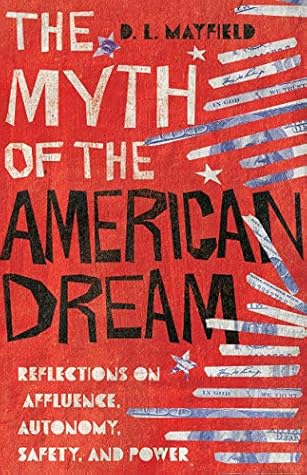More on this book
Community
Kindle Notes & Highlights
Read between
May 28 - July 7, 2020
try to lean into in the gift of being a witness to the good and the bad of the world,
thought God rewarded those who obeyed the rules. I thought my good news was accessible to everyone if only they had the ears to listen.
did not have a worldview or an ethical framework that accounted for realities different from my own.
Affluence, autonomy, safety, and power. Four concrete values that bled into each other and seeped into my bones, affecting the decisions I made every day, from the tiniest to the monumental. I
“Teacher,” she told me, “teacher, we cannot read, we never know who is calling.”
started with me believing myself to have something to offer to the poor and needy because I was born with more.
“the sustained struggle between the insatiable acquisitiveness of Pharaoh and ‘neighborliness’ in commitment to sharing the common good.”1
Americans seem to idolize these powerful entities.
held that peace comes through victory—through military might and the affluence of the empire.
What they need are good neighbors. They need people to live next door
to them, to send their kids to school with theirs, to vote for policies that protect instead of harm them. They need people whose lives are intricately bound up with their flourishing.
“All men are caught in an inescapable network of mutuality, tied in a single garment of destiny. Whatever affects one affects all indirectly. I can never be what I ought until you are what you ought to be.”2
“amnesia of affluence” that theologians point out in the Bible, and in our modern-day context.
especially if you had resources or thought that you had earned the right to hoard due to correct beliefs and actions.
living in a city where people of difference actually had to learn to live and grapple with each other every day—Minnesota
In the Scriptures the ultimate check on the relentless desire for more is the reality of our neighbor.
know how affluence works, how different it is from a God who provides manna,
How affluence needs segregation and amnesia to thrive, how it convinces us to forget God and instead take pride in our own choices and abilities.
desire in a consumeristic society keeps us distracted from the desires of those who are truly hungry.
The only problem is, being financially safe and secure isn’t a major theme of Scripture—but unjust economic practices are.
But I need and want a bigger dream than the idea of becoming a millionaire.
that everyone would have what they need to thrive as the image bearers they
give the privileged more ammunition to judge those who aren’t making it while at the same time it makes no moral demands on those who make more than enough.
gives those with wealth permission to spend without constraint.
But in her private journals she often took the time not to write about the great injustices but instead the simple pleasures that delighted her: a piece of pie and a cup of coffee.
we might be called to give up what we have hoarded and learn how to be open and generous.
“What we would like to do is change the world—make it a little simpler for people to feed, clothe and shelter themselves as God intended them to do.”
But I hardly see any actual Black lives in that neighborhood.


